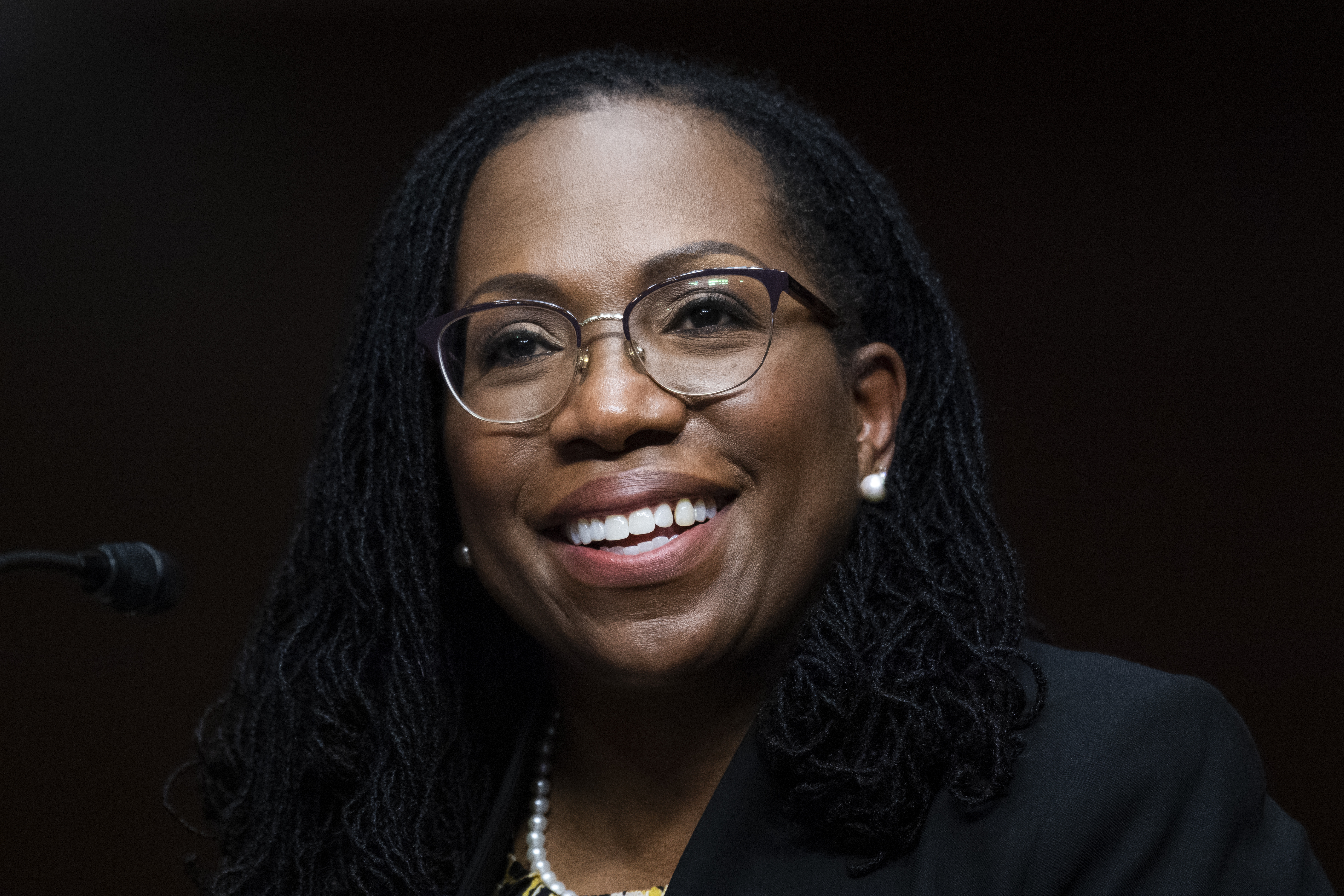President Joe Biden and Senate Democrats are expected to move quickly to fill the seat of retiring Supreme Court Justice Stephen Breyer, seizing the chance to energize their voting base ahead of November's midterm elections, when control of Congress will be at stake.
The president promised during his campaign to name a Black woman to the Supreme Court if a vacancy arises, and the White House reiterated that commitment Wednesday. Fulfilling the promise would represent an enormous breakthrough for Black Americans, who have long been underrepresented in the federal judiciary.
For Democratic lawmakers, it could also lessen the sting from their unsuccessful efforts to pass voting rights legislation or get Biden's ambitious social spending and environmental package over the finish line.
Get Connecticut local news, weather forecasts and entertainment stories to your inbox. Sign up for NBC Connecticut newsletters.
A look at the confirmation process and what we know, and don’t know, about what’s to come:
What's Next for Supreme Court?
The Senate plans to launch the confirmation process as soon as Biden makes a nomination. Senate Majority Leader Chuck Schumer, D-N.Y., said Biden's pick will receive a prompt hearing and will be considered and confirmed “with all deliberate speed."
Even though Breyer is not expected to retire until the summer, the Senate can move quickly to confirm his successor. Democrats could quickly hold confirmation hearings in the Judiciary Committee and even hold a full vote in the Senate before he steps down.
The Senate would just refrain from sending the president the paperwork on the final confirmation vote until Breyer steps aside. The Supreme Court's term usually ends in late June.
More Supreme Court Coverage
How Is a Supreme Court Justice Confirmed?
By a Senate majority vote. The Senate is divided 50-50 along party lines, but Democrats control the chamber because Vice President Kamala Harris can break tie votes.
Supreme Court nominations used to need 60 votes for confirmation if any senator objected, but then-Senate Majority Leader Mitch McConnell, R-Ky., changed Senate rules in 2017 to allow the confirmation of Supreme Court justices with 51 votes. He did so as Democrats threatened to filibuster President Donald Trump’s first nominee, Neil Gorsuch.
How Does the Senate Confirmation Process Work?
It is up to the Senate Judiciary Committee to vet the nominee and hold confirmation hearings that typically extend over three days. Once the committee approves the nomination, it goes to the Senate floor for a final vote. This process passes through several time-consuming steps, including meetings with individual senators.
Has There Ever Been a Supreme Court Nominee That Wasn't Confirmed?
Yes. From the appointment of the first justices in 1789 through its consideration of nominee Amy Coney Barrett in 2020, the Senate has confirmed 120 Supreme Court nominations out of 164 received. Of the 44 nominations which were not confirmed, 12 were rejected outright in roll-call votes by the Senate, according to the Congressional Research Service.
Who Are the Senators to Watch?
Supreme Court nominations have become increasingly partisan, so it's likely the vast majority of Republicans will oppose Biden's nominee. But with the court's ideological balance unthreatened by the nomination — Biden's pick would not change the court's 6-3 conservative tilt — some bipartisan support is possible.
Moderate Republican Sens. Susan Collins of Maine and Lisa Murkowski of Alaska will be closely watched as possible swing votes. Both support abortion rights, which are increasingly seen as under threat from the court's conservative majority. A handful of other GOP senators, including some who are retiring, could be possible crossover votes depending on the nominee.
On the Democratic side, all eyes will be on Sens. Joe Manchin of West Virginia and Kyrsten Sinema of Arizona. They were willing to buck Biden and their Democratic colleagues when it came to changing the Senate's filibuster rules. Would they be willing to do the same when it comes to the Supreme Court?
How Long Will the Confirmation Process Take?
Supreme Court nominations have taken around 70 days to move through the Senate, but there are no set rules for how long the process lasts.
Republicans rushed to get Justice Amy Coney Barrett confirmed before the presidential election. She was confirmed on Oct. 26, 2020, exactly a month after Trump nominated her.
What Are Advocacy Groups Advising Democrats?
They are calling for diversity in the pick, not only demographically, but in experience.
“The Supreme Court would be well served by a justice who has served as a public defender or worked to represent legal aid or civil rights organizations," said Patrick Gaspard, president and CEO of the Center for American Progress.
“We urge the president and the Senate to move quickly to nominate and confirm the first Black woman Supreme Court justice, drawing from the extraordinary pool of brilliant and qualified women scholars, jurists and attorneys that our country has to offer," said Ben Jealous, president of People for the American Way.
“President Biden has many highly-qualified candidates to consider, but we hope he takes this opportunity to not only make good on his commitment to increase the court’s racial diversity, but also his vision for professional diversity," said Brian Fallon, executive director of Demand Justice.
Who Is Biden Considering to Replace Breyer?
President Joe Biden is eyeing at least three judges for an expected vacancy on the Supreme Court. Each of them would fulfill his campaign pledge to nominate the first Black woman to the nation’s highest court, according to aides and allies.
Early discussions about a successor are focusing on U.S. Circuit Judge Ketanji Brown Jackson, U.S. District Judge J. Michelle Childs and California Supreme Court Justice Leondra Kruger, according to four people familiar with the matter who spoke on condition of anonymity to discuss White House deliberations. Jackson and Kruger have long been seen as possible nominees.



